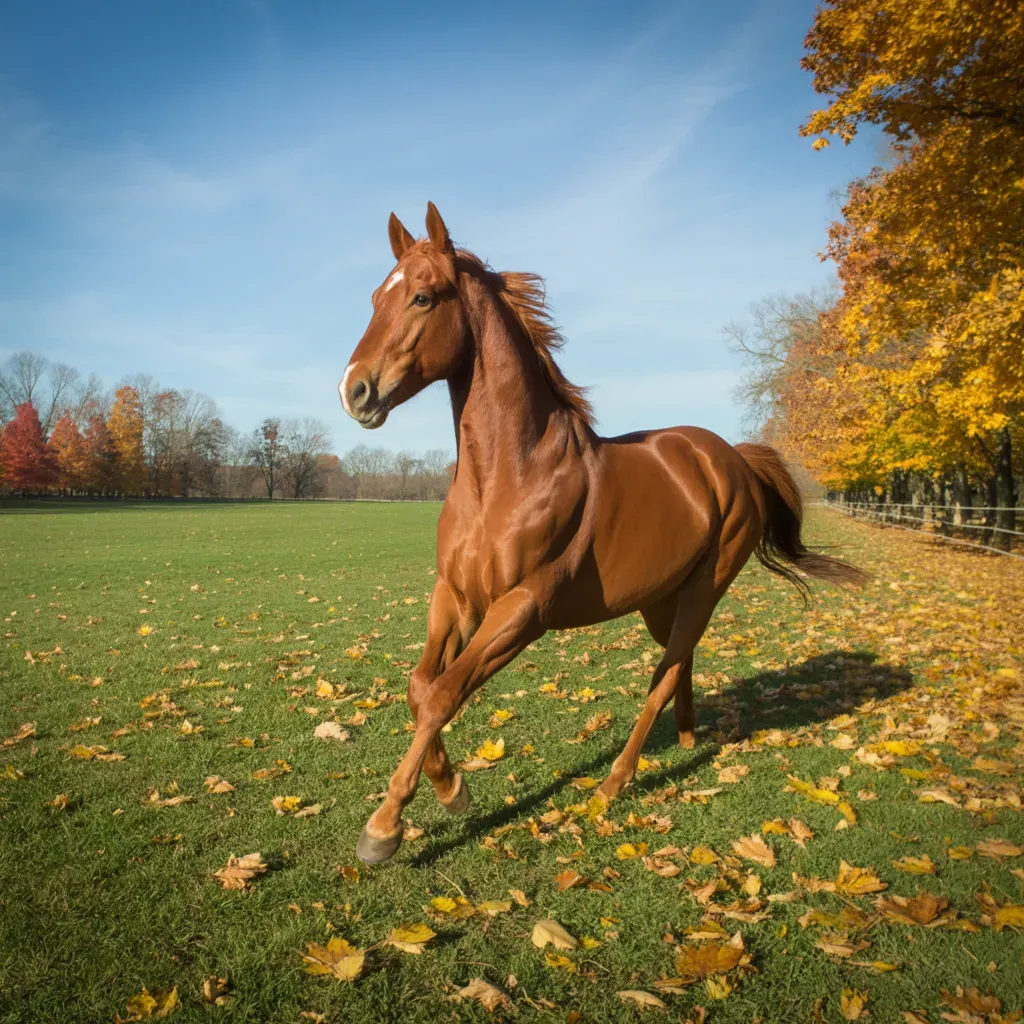Waiting for the hard frost: natures helping hand against equine parasites
How nature’s timing can help keep your horse parasite-free all winter
So, here we are again, the beginning of November, and this is the month when we should all be willing on a hard-frost, as when it comes to natural worm protection for our horses, a November ‘killing’ frost is invaluable! Plus it also brings on the stunning autumn colours – oh the memories of autumn forest trail rides …
So what's the deal with a 'hard' frost? It's said to kill off many of the equine parasites, particulary bots whose larvae can live very comfortably in our horses’ digestive systems.
These days we’re fortunate to have selective deworming as an option, with faecal egg counts depicting whether we need to chemically worm or not. It’s also thanks to this practice that apparently only around 20% of horses are repeatedly affected with worms, with the other 80% either worm-free or at a low enough level to not need a chemical treatment, as most worms can be detected in faecal samples.
Apart from bots, that is. They love to overwinter in the horse’s gut, and this is a top reason as to why a killing frost is so useful. Worming
immediately after a killing frost will effectively kill the larvae in the intestines, which means with no more bots flying around, this will interrupt the cycle as the horse won’t be shedding any more larvae come spring. Result? No new hatching bots ready to lay their eggs next year. Following this practice consistently is said to even eradicate bots from your region.
Equally, worming just before a killing frost can also be an ideal time, because once cleaned out, our horses are likely to remain pretty much parasite-free until spring.
These days it’s well known that with a a healthy intestinal environment and well-functioning immune system, our horses are pretty well able to defend themselves against a worm burden. This is where natural intestinal support can be so complimentary, based on improving the intestinal environment and thus making it hostile for parasites to want to settle there. With any newly absorbed worm larvae finding it too uncomfortable to set up home, they'll weaken, which makes it easier for the immune system to fight them.
Top Tip – Sainfoin is an excellent feed that’s high in tannins, which have a stabilising effect on the large intestine, the very section of the intestine where strongyles like to make their home. Sainfoin comes highly recommended to protect the gut, so feeding it as your base feedbowl carrier may help control those pesky parasites.
Apparently small ruminants (sheep and goats) show significantly fewer worm infections when regularly fed sainfoin, plus it’s also a higher protein forage so ideal for those horses who struggle to hold winter weight. On a personal note, a couple of winters’ ago our now 18yo TB mare, Carmen, started dropping a bit of winter condition, and with Murf being an old chap now, I switched them both over to Sainfoin for the winter - anything to help my old boy is high on my list. With a quick hot-water soak which literally takes seconds, they absolutely love it, and Carms looks great through the winters these days.
You’ll find sainfoin at
Simple Systems.
Tapeworms
We’re also heading towards tapeworm test time, and again, nature can help here as pumpkin seeds are well known for their taeniacide and taeniafuge properties - taeniacides are phytonutrients that specifically destroy tapeworms, with taeniafuges expelling them.
Apart from this, pumpkin seeds are not only very palatable but also highly nutritious - higher in protein (at 29%) than almost any other nut or seed, they're also an excellent source of Zinc and Vitamin A.
In worming circles though, they have an important anthelmintic (natural wormer) property - meet cucurbitin, an amino acid said to be one of the most efficient taeniafuge remedies for killing intestinal parasites, including tapeworms and roundworms, by causing degenerative changes in the worms’ reproductive organs, with the seed's high zinc content also helping to expel them.
Last year we got Carms down from a 700epg tape count to low, just through adding ground pumpkin seeds, and as they’re so palatable and nutritious, I now feed them both a scoop every day.
And of course our certified organic ground pumpkin seeds are human grade, so sprinkle some on your winter porridge too!










